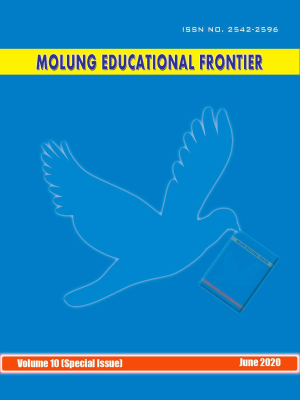Buddhist Literature: A Cosmopolitan Philosophy
DOI:
https://doi.org/10.3126/mef.v10i1.34032Keywords:
Buddhism, Cosmopolitanism, humanistic way, wisdom, compassionAbstract
This article argues that literature of Buddha's philosophy has cosmopolitan nature. Buddhists do not believe in a personal creator God. In this sense, Buddhism is more than a religion; it is not centered only on the relationship between humans and a high God. Buddhism is a philosophical tradition that believes and centers on personal spiritual development. It is a humanistic way of life which can be understood as motivated to lead a moral life; it is also conscious of one's thoughts and actions as well as in developing wisdom and compassion. Both Buddhism and cosmopolitanism assert the dignity of every human being; these ideals aim at improving the condition of life. Philanthropy, empathy, and compassion can be considered as synonyms for Buddhism and cosmopolitanism. Service to fellow human beings is at the center for a cosmopolitan. When humans ascend the material concerns like pleasure and material desire, they are free to fulfill responsibilities to fellow human beings so that they can go up and beyond the close family members to all human beings, which is the philosophy of both Buddhism and cosmopolitanism. In both the Buddhist and cosmopolitan philosophy there is basic consideration of humanity. Buddhist social thought offers something to cosmopolitan ethics that cosmopolitanism’s desire to enhance ‘human interconnectedness’ is truly helpful to minimize the human sufferings. In this article, my goal is to explore and show Buddhism as a cosmopolitan philosophy.
Downloads
Downloads
Published
How to Cite
Issue
Section
License
© Molung Foundation




